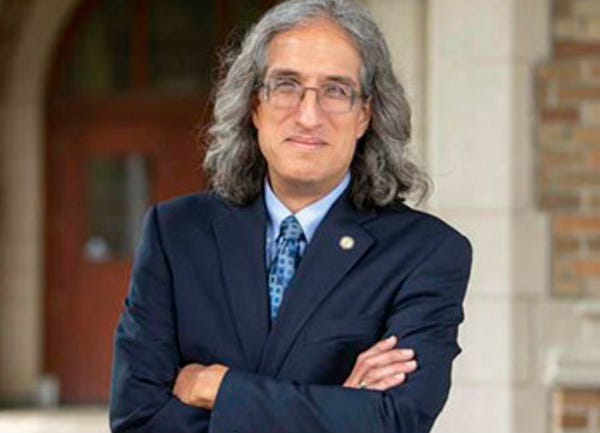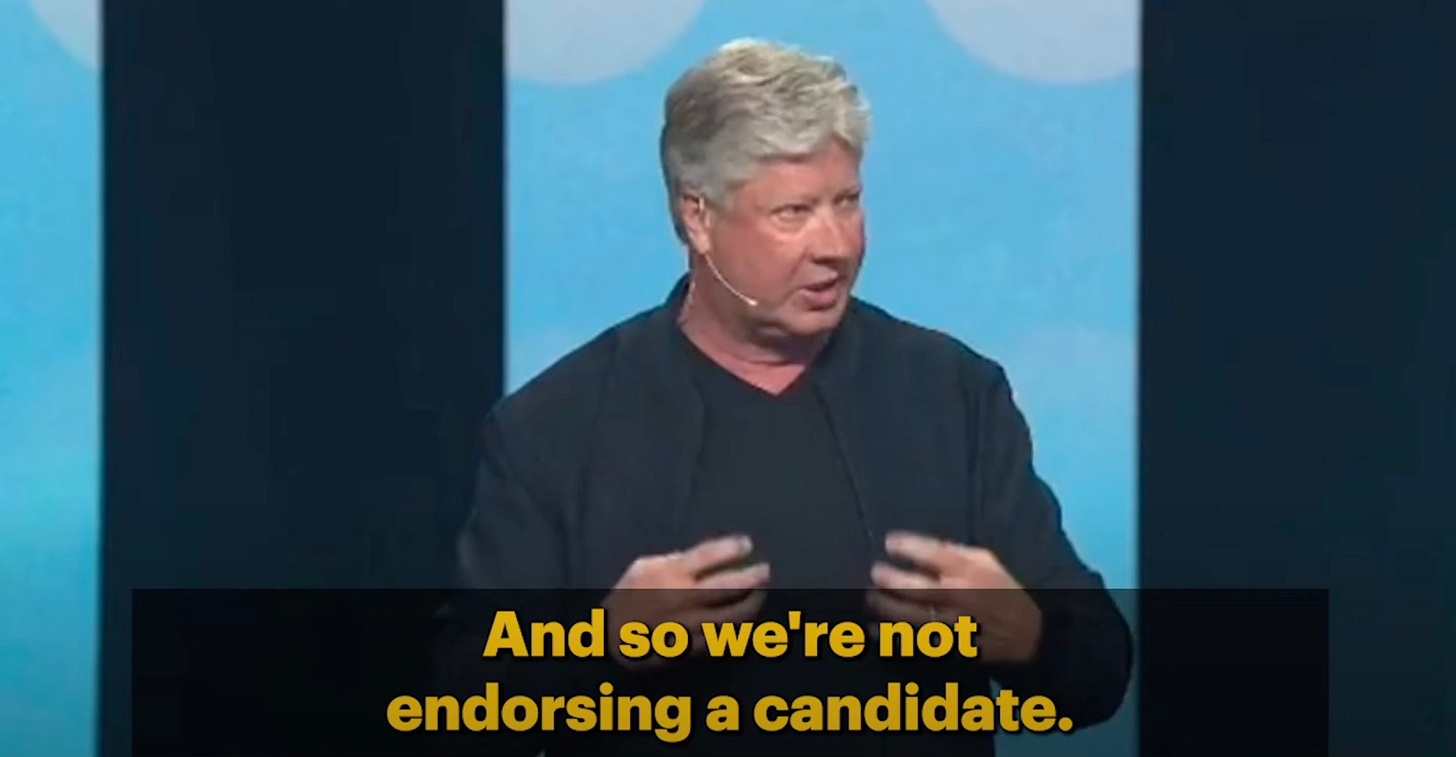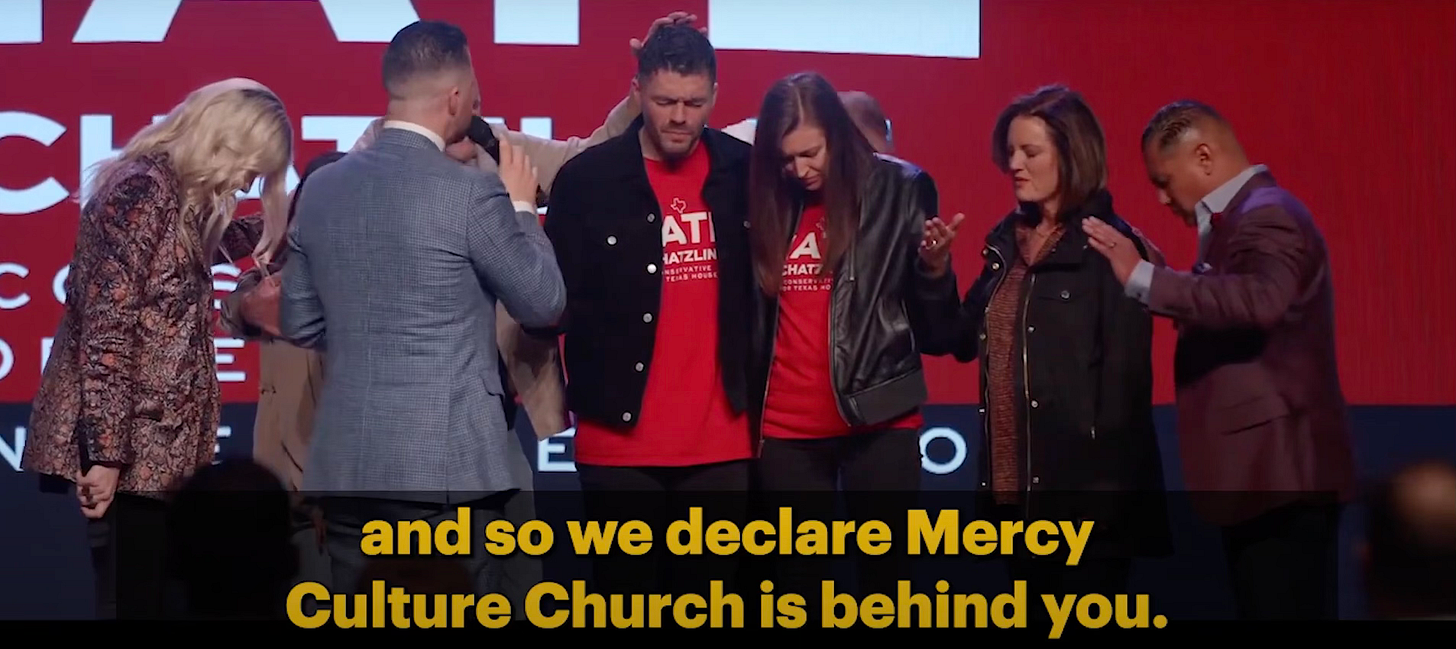“Render to Caesar the things that are Caesar's, and to God the things that are God's.”
Jesus Christ, Matthew 22:21
Despite the New Testament’s recording of its main character making a clear distinction between what man owes his government (taxes) and his lord (devotion), in real life it’s never quite worked out that way. Churches have been tax-exempt since time immemorial. Today, the very idea of asking houses of worship to pay their fair share is a non-starter.
In America, like virtually everything else in our country, that simple concept has been supersized so that not only churches but faith-based organizations of all stripes and the individuals who claim to lead them have grown fat with taxpayer subsidized riches.
Riches, in turn, spent counter to the interests of those paying the taxes.
It’s no coincidence that at a time when the IRS is stretched thin and overwhelmed by its own complexity, religious organizations have leveraged loopholes to take advantage of the tax code. Made brazen by a sympathetic Supreme Court, pastors are increasingly, and egregiously, flouting electioneering from the pulpit. Further, the incoming administration has made clear its intent to declare nonprofits that oppose its policies terrorist organizations, thereby stripping them of their nonprofit status and thus their ability to collect tax-deductible contributions, their very lifeblood.
I knew at some point Unreasonable would have to address taxation and The Church, but what would be our angle? Sure, we could have spoken with an advocate for taxing the churches. But that’s as much a pipe dream as America electing a woman president. It’s just not going to happen.
Then I came across this article in The Chronicle of Philanthropy titled “The IRS and ‘Churches’ That Aren’t Really Churches” by Lloyd Hitoshi Mayer, professor of nonprofit law at Notre Dame, in whom we found our Virgil to guide us with wisdom and humor through the holy hellscape of taxes and religion.
Could there possibly be a better time to look at the privileges that purported charities, and especially religious-based organizations, are granted by a government that is supposed to uphold the wall of separation between church and state rather than aid in tearing it down?
Take for example violations of the Johnson Amendment, which prohibits 501(c)(3) charities and churches from making political endorsements. There are two tacks these groups can take: create an organization within an organization that actually permits political work — that’s one workaround — or, in the not uncommon case of Robert Morris, pastor of the Dallas-area Gateway Church, simply state that the church is not, not! telling its flock whom to vote for, and then do so.
“We’re not endorsing a candidate. We’re not doing that. We just thought that because they’re a member of the family of God, that you might want to know if someone in the family, in this family of churches, is running.”
Pastor Robert Morris, Gateway Church
As Prof. Mayer tells David and Christina:
“The IRS has been wary, even in blatant cases, of spending their limited resources going after [violations of the Johnson Amendment], and it's hard. There's no way to challenge them. There's no way for you or me, or the various groups like Americans United for Separation of Church and State or the Freedom From Religion Foundation…they can file complaints till they’re blue in the face, but they cannot make the IRS do anything. In fact, the IRS can't even tell them what they're doing because of taxpayer privacy.”
Which means that more candidates will be endorsed from the pulpit as was Nate Schatzline, running for a seat in the Texas state house, by the pastors of the Fort Worth-based Mercy Culture Church.
“Now, obviously, churches don’t endorse candidates, but my name is Landon and I’m a person before I’m a pastor. And as an individual, I endorse Nate Schatzline.”
Pastor Landon Schott, Mercy Culture Church
These churches, often of the mega variety, will rake in millions of dollars in donations each year and not pay a penny in taxes, amounting to a taxpayer subsidy of their religio-political activities. The kind of activities that move elections.
The kind of elections whose consequences include the overturning of Roe v Wade, public funding of religious schools, tacit approval of discrimination against non-Christians, and modern laws shaped by selective misreadings of a 2,000 year old book.
And just like the IRS, there’s precious little any of us can do about it.
And on that happy note, listen to our conversation with Prof. Mayer, one of our most (surprisingly) entertaining episodes given the subject matter.
And click through the links above and in The Follow-up below to learn more.
The Follow-up
“To distinguish churches from other religious nonprofits,” says Prof. Mayer, “the IRS has long relied on a 14-factor test. “Those factors include ecclesiastical government, formal doctrine, a distinct membership, ordained ministers, a regular congregation and religious services. The IRS does not require that all factors be present and does not give any factor controlling weight.”
Family Research Council. “The FRC, a staunch opponent of abortion and LGBTQ rights, joins a growing list of activist groups seeking church status, which allows organizations to shield themselves from financial scrutiny.”
Universal Life Church Exemption Revoked. “The IRS denied the Church's application for tax exempt status in 1969 and again in 1970 on the ground that the Church had engaged in activities outside the religious activities contemplated by I.R.C. section 501(c)(3).”
“Judge Upholds IRS Action Against Pierce Creek Branch Ministry Church That Sponsored Campaign Ad”
“Right-Wing Legal Crusades Have Made This Ex-Trump Lawyer Jay Sekulow Super Rich”
HR 9495, the “recently passed House bill that would allow the president to wipe out any nonprofit organizations he opposes with the flick of a pen.”
Our Unreasonable interview with The Satanic Temple founder Lucien Greaves





